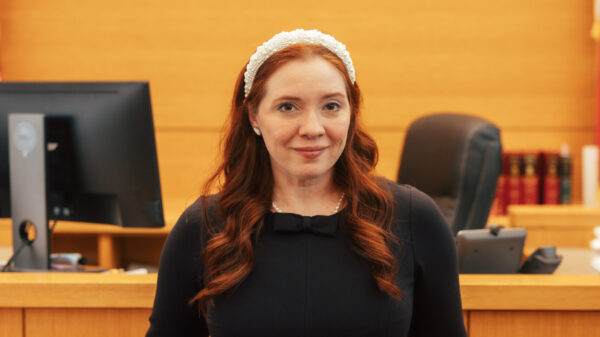The circuit court judges of Etowah County apparently want no part of Roy Moore’s political conspiracy lawsuit against four women who accused the former Alabama chief justice of sexual assault or inappropriate behavior in the late 1970s, early 1980s, when they were teens and he was in his 30s.
On Tuesday, two more Etowah County judges recused from the case, which was originally filed in April 2018, a few months after Moore lost a U.S. Senate race to Doug Jones. The case has been stalled almost from the start while other legal cases played out first, and while the court system worked out just who might be willing to preside over the trial.
Shortly after it was filed in 2018, all four sitting Etowah County judges at the time recused, citing various conflicts. In the years since, the Alabama Supreme Court has attempted to assign the case to two different judges from outside of the county, but each of those also recused.
The last to recuse, Covington County Circuit Court Judge Benjamin Bowden, granted a motion from the defense to have the case moved before an Etowah County judge, since two new judges have come to the bench since the case began.
Bowden granted the motion to have the case transferred back to Etowah County last Friday. By Monday, one of the new Etowah County judges had recused. By the Tuesday, the second one was out too.
That takes the case back to basically where it was a month after Moore filed it – with the Alabama Supreme Court searching for judges outside of Etowah who might be willing to take it on.
Finding one, obviously, won’t be easy, because the case is destined to be a headache for any court: four defendants, a public figure plaintiff, a high-profile case stemming from a national media uproar and lots of attorneys filing lots of motions.
Moore sued his accusers – Leigh Corfman, Debbie Wesson Gibson, Beverley Young Nelson and Tina Gibson – and alleged a variety of misdeeds, including political conspiracy, defamation, wantonness, negligence and intentional infliction of emotional distress.
All four women publicly accused Moore of, at the very least, inappropriate behavior, and potentially sexual assault. The misdeeds, they said, happened decades earlier, when they were in their teens and Moore, a young attorney at the time, was in his 30s.
Corfman’s allegations were the most severe. She stated that in 1979, when she was 14 and Moore was 32, Moore undressed her and coerced her into touching him on the outside of his underwear.
The allegations were first published in the Washington Post and came just a month before the U.S. Senate special election in Alabama. The resulting media firestorm enveloped the race and put Moore and his past alleged behavior in the spotlight. It ultimately cost him the race, and Jones, a huge underdog in the deep-red state when the race began, became Alabama’s senator.
For his part, Moore has maintained his innocence, saying that not only did he not assault any of the women but that he never had any contact with them at all and didn’t know them.



















































